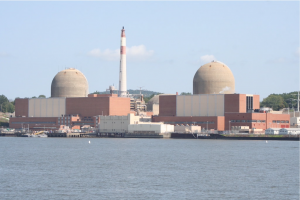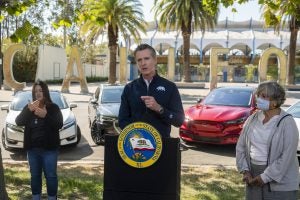 November 7, 2021
by Yanai Ben Gigi
Climate change
Litigation
Regulations
November 7, 2021
by Yanai Ben Gigi
Climate change
Litigation
Regulations
The Supreme Court will soon hear a case that may alter the regulation of carbon dioxide emissions under the Clean Air Act and expand the reach of the nondelegation doctrine.
 November 2, 2021
by Steve Brenner
Climate change
Energy
Fossil Fuels
State and Local
November 2, 2021
by Steve Brenner
Climate change
Energy
Fossil Fuels
State and Local
On October 27, 2021, the New York State Department of Environmental Conservation (NYSDEC) denied two applications for proposed natural gas-fired power plants.[1] New York State has denied permit applications for fossil fuel infrastructure before,[2] but…
 April 20, 2021
by Blake Ellis
Climate change
Energy
Fossil Fuels
Renewable Energy
April 20, 2021
by Blake Ellis
Climate change
Energy
Fossil Fuels
Renewable Energy
In February 2021, the state of Texas experienced unprecedented power outages caused by severe winter storms. Conservative politicians and media were quick to blame the use of renewable energy as the culprit of the outages. The facts present a different explanation.
 March 31, 2021
by Alec Williams
Air
Climate change
Litigation
Public Lands
State and Local
March 31, 2021
by Alec Williams
Air
Climate change
Litigation
Public Lands
State and Local
After a record-breaking wildfire season in 2020, lawsuits are likely to flood the dockets of federal and state courts across the United States. Wildfire liability determinations at either level can be complex, typically implicating many parties and exorbitant damage awards. However, in light of the projected impact of climate change on wildfire frequency and severity, such lawsuits may become increasingly commonplace.
By Alec Williams, Managing Editor
 January 29, 2021
by Eleanor Hildebrandt
Climate change
International
Oceans
Water
January 29, 2021
by Eleanor Hildebrandt
Climate change
International
Oceans
Water
The effects of climate change will make swaths of the planet uninhabitable, displacing millions of people. How can the United States’ legal system facilitate an equitable, humanitarian response to those seeking safe resettlement within its borders?
 January 15, 2021
by Sara Zaat
Air
Chemicals
Climate change
International
January 15, 2021
by Sara Zaat
Air
Chemicals
Climate change
International
Hydrofluorocarbons, an alternative to the ozone-depleting substances that damage the Earth’s protective ozone layer, are potent greenhouse gases that exacerbate climate change. These chemicals are scheduled for reduction under international law: the Kigali Amendment to the Montreal Protocol on Substances that Deplete the Ozone Layer. Will the United States join the majority of U.N. Member States in committing to phasing down its hydrofluorocarbon production and consumption in accordance with international law in a Biden administration?
 January 12, 2021
by Shannon Twiss
Agriculture
Climate change
Regulations
January 12, 2021
by Shannon Twiss
Agriculture
Climate change
Regulations
Policymakers should take a closer look at the way the effects of climate change are taking their toll on our most essential workers in agriculture, manufacturing, and emergency response.
 October 25, 2020
by Hyunjin Kim
Air
Chemicals
Climate change
Fossil Fuels
International
October 25, 2020
by Hyunjin Kim
Air
Chemicals
Climate change
Fossil Fuels
International
"Normal was a crisis." When we say we want to "go back to normal," do we really mean the world exactly as we left it? Or, could we use COVID as a means of building something better than what we had, perhaps greener?
 October 20, 2020
by Camden Douglas
Air
Climate change
Fossil Fuels
Regulations
State and Local
October 20, 2020
by Camden Douglas
Air
Climate change
Fossil Fuels
Regulations
State and Local
On September 23, 2020, California Governor Gavin Newson issued an executive order[1] that is expected to reduce the impact of climate change by drastically transforming the State's transportation industry. California experiences many unique climate change-related problems. For instance, as a result of climate change, the duration of California's wildfire season has more than doubled since 1980.[2] Indeed, this year, California is experiencing a record-breaking burn,[3] with wildfires scorching millions of acres of land.[4] The executive order, in an attempt to attenuate some of these climate change-related impacts on the State, requires all new passenger vehicles sold in California to be zero-emission by 2035, effectively banning the sale of new gasoline-powered vehicles in just fifteen years.[5]
 May 3, 2020
by Robert Patton
Climate change
Energy
Natural Resources
Renewable Energy
May 3, 2020
by Robert Patton
Climate change
Energy
Natural Resources
Renewable Energy
The coronavirus pandemic provides a unique opportunity to address global climate change.
By Robert Patton, Managing Editor











